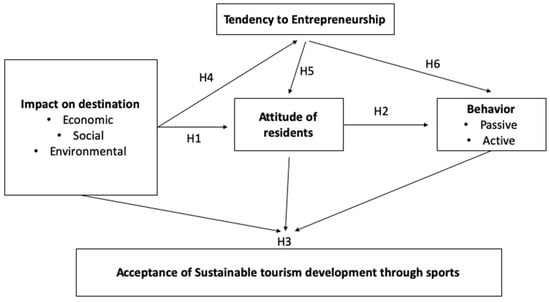
Balancing Thrills and Ecology: The Era of Sustainable Sports Tourism
Sustainable sports tourism has emerged as a crucial aspect of travel, combining the excitement of sports events with a commitment to environmental responsibility. This evolving trend is reshaping the way fans experience their favorite sports and the impact of these events on the world.
The Environmental Impact of Sports Tourism
Traditional sports tourism often raises concerns about its environmental footprint. The influx of visitors, transportation emissions, and excessive resource consumption during events contribute to ecological challenges. Sustainable sports tourism seeks to address these issues by adopting practices that minimize environmental harm.
Green Stadiums and Eco-Friendly Infrastructure
One key aspect of sustainable sports tourism is the development of green stadiums and eco-friendly infrastructure. From solar-powered arenas to rainwater harvesting systems, sports venues are embracing sustainable technologies. These initiatives not only reduce the environmental impact but also serve as models for other industries.
Local Engagement and Community Benefits
Sustainable sports tourism emphasizes local engagement and community benefits. Events are designed to enhance the well-being of local communities by promoting local businesses, creating job opportunities, and supporting cultural initiatives. This approach fosters a positive relationship between sports events and the regions they are hosted in.
Promoting Responsible Travel Practices
As fans travel to attend sporting events, promoting responsible travel practices becomes essential. Sustainable sports tourism encourages the use of public transportation, eco-friendly accommodations, and minimizes single-use plastics. These efforts contribute to a more sustainable travel experience for attendees.
Educating and Inspiring Fans
An integral part of sustainable sports tourism is the education and inspiration of fans. Through awareness campaigns, events, and interactive experiences, fans are informed about the environmental impact of sports tourism and encouraged to adopt sustainable practices. This educational aspect aims to create a more conscious and environmentally responsible fan base.
Incorporating Eco-Friendly Event Management
Event organizers play a crucial role in sustainable sports tourism by incorporating eco-friendly event management practices. This includes waste reduction, recycling programs, and the use of renewable energy sources. Sustainable event planning not only benefits the environment but also sets a positive example for future sports events.
Technology as a Catalyst for Sustainability
The integration of technology is a catalyst for sustainability in sports tourism. From virtual ticketing to real-time environmental monitoring, technology offers innovative solutions to reduce the ecological impact of events. This tech-driven approach enhances the overall sustainability of sports tourism.
Partnerships for a Greener Future
Collaborations between sports organizations, sponsors, and environmental groups are instrumental in driving sustainable sports tourism forward. These partnerships support initiatives such as reforestation projects, carbon offset programs, and sustainable development goals, contributing to a greener and more responsible sports industry.
Measuring and Improving Sustainability Metrics
A commitment to sustainable sports tourism requires continuous evaluation and improvement. Establishing measurable sustainability metrics allows stakeholders to track progress and identify areas for enhancement. This iterative process ensures that the industry is consistently evolving towards a more sustainable future.
The Future Landscape of Sports Tourism
Sustainable sports tourism is not just a current trend but a vision for the future of sports-related travel. As fans, organizers, and communities increasingly recognize the importance of ecological responsibility, the landscape of sports tourism is shifting towards a more sustainable and harmonious coexistence with the environment.
In conclusion, sustainable sports tourism is paving the way for a new era in the world of sports and travel. By embracing eco-friendly practices, engaging local communities, and inspiring fans to adopt responsible behaviors, the industry is poised for a future where the thrill of sports can coexist seamlessly with a commitment to environmental sustainability. Explore the exciting possibilities of sustainable sports tourism at Sustainable Sports Tourism.

